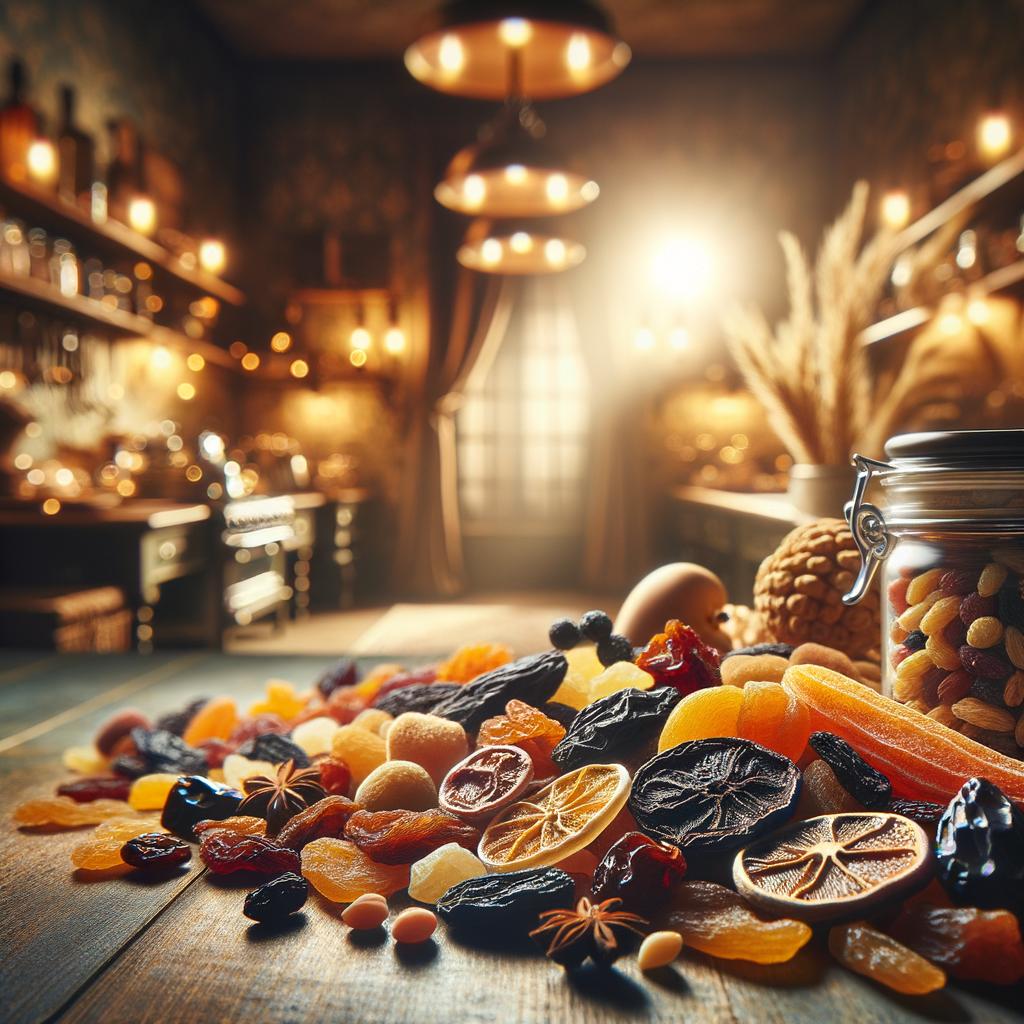Dried Fruit

Description Dried fruit, a humble yet magical ingredient, is as old as time itself. These are fruits from which the majority of the original water content has been removed either naturally, through sun drying, or through the use of specialized dryers or dehydrators. The result is a shrunken, energy-dense morsel that retains the fruit's sweet, tangy, or tart flavor, but in a concentrated form. The texture varies from chewy to crunchy, depending on the fruit and the drying process. Dried fruit's unique characteristic lies in its ability to pack an intense flavor punch and provide nutritional benefits, despite its diminutive size.
Primary Uses Dried fruit is a versatile ingredient used widely across the globe. It's a key component in Middle Eastern cuisine, where it's used in savory dishes like tagines and pilafs, as well as in sweet dishes like baklava. In the West, dried fruit is often found in baked goods like fruitcake and granola bars. It's also a popular addition to trail mix, providing a burst of energy for hikers and adventurers. Beyond culinary uses, dried fruit has cultural significance in many societies. For instance, during Chinese New Year, dried fruit is often given as a gift to symbolize abundance and good fortune.
History The history of dried fruit is a journey that spans millennia and continents. Ancient civilizations in the Middle East and the Mediterranean were known to dry fruits in the hot sun. In fact, dates, one of the earliest dried fruits, have been a staple in the Middle Eastern diet for over 5,000 years. The popularity of dried fruit spread along the Silk Road, reaching China, where dried lychees became a favorite. In the New World, Native Americans dried berries and other fruits for winter use. Dried fruit was also an essential part of a sailor's diet during long sea voyages in the Age of Exploration. The tradition of using dried fruit in holiday baked goods, such as fruitcake, dates back to the Middle Ages when these ingredients were a luxury.
Nutritional Information Despite their small size, dried fruits are a nutritional powerhouse. They are high in fiber and a great source of antioxidants. They are also rich in various vitamins and minerals, including potassium and iron. However, due to their high sugar content and caloric density, moderation is key when consuming dried fruit. Compared to fresh fruit, dried fruit has more energy density and fiber per serving, but also more sugar. Despite this, the health benefits of dried fruit are notable, including aiding digestion, boosting iron levels, and providing a quick energy source due to their natural sugars.

